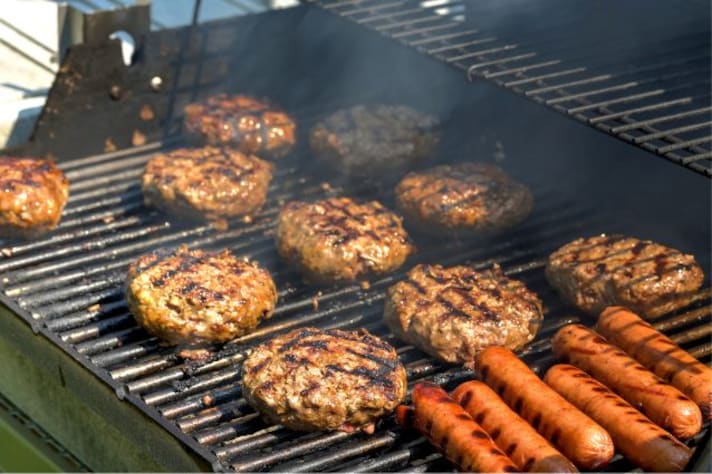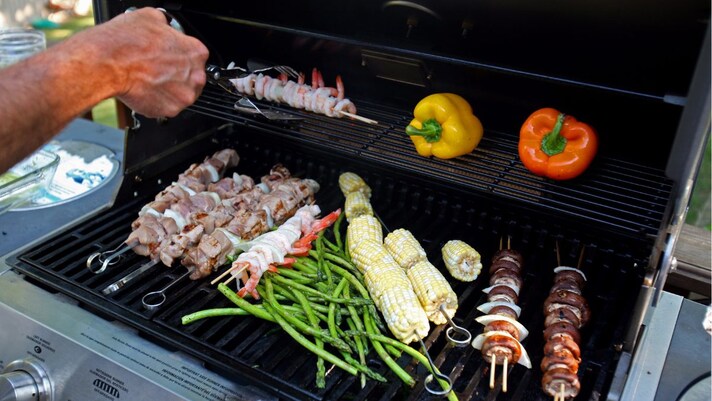Charcoal vs Gas Grills: Which is Best for Your BBQ?
Deciding between charcoal and gas grills can be challenging. Charcoal grills offer a rich, smoky flavor and a traditional grilling experience, while gas grills provide convenience, cost-effectiveness, and easier temperature control. Below, we explore the key differences in flavor, cost, convenience, health, and environmental impacts to help you choose the right grill for your needs.
;Resize,width=742;)
When it comes to grilling, the debate between charcoal and gas grills is a hot topic. Each type of grill has its own advantages and disadvantages, making the choice ultimately dependent on your personal preferences and grilling needs.
Charcoal vs Gas Grills: Flavor Differences
One of the most significant differences between charcoal and gas grills is the flavor they impart to the food. Charcoal grills are known for their ability to produce a rich, smoky flavor that many grilling enthusiasts love. The smoke from the charcoal and wood chips infuses the food with a distinct taste that is hard to replicate with gas grills.
On the other hand, gas grills offer a cleaner flavor. While they may lack the smoky essence of charcoal, they allow the natural flavors of the food to shine. Gas grills are also more consistent in maintaining heat, which can be crucial for certain recipes.
Charcoal vs Gas Grills: Cost and Convenience
When it comes to cost, gas grills generally have a higher upfront price compared to charcoal grills. However, the running costs of charcoal grills can add up over time as you need to continually purchase charcoal. Gas grills, while initially more expensive, use propane or natural gas, which can be more cost-effective in the long run.

In terms of convenience, gas grills are often seen as the winner. They are easier to start, usually with the push of a button, and they heat up quickly. Charcoal grills, in contrast, require more time and effort to light and get to the right temperature. However, many grill aficionados enjoy the process of starting and tending to a charcoal grill as part of the overall grilling experience.
Charcoal vs Gas Grills: Health and Environmental Impacts
Health and environmental considerations are also important when choosing between charcoal and gas grills. Charcoal grills tend to produce more smoke and carbon emissions compared to gas grills, which can be a concern for air quality. Additionally, the production and disposal of charcoal can have a greater environmental impact.
From a health perspective, there is some evidence suggesting that grilling with charcoal can produce more carcinogens compared to gas grills. The high heat and smoke from charcoal can cause the formation of harmful compounds on the food. Gas grills, with their more controlled flame, can reduce this risk.
Charcoal vs Gas Grills: Usage and Maintenance
Both types of grills require maintenance, but the specifics can differ. Charcoal grills need regular cleaning of ash and leftover charcoal. They also require frequent replacement of charcoal. Gas grills, while easier to clean due to the absence of ash, require periodic checks of gas lines and connections to ensure safety.

In terms of usage, gas grills offer better temperature control with adjustable knobs, making them more versatile for different types of cooking. Charcoal grills, while more challenging to control, can reach higher temperatures, which is ideal for searing meat.
The Verdict
Choosing between a charcoal and gas grill depends on your priorities and grilling style. If you value a smoky flavor and enjoy the traditional grilling process, a charcoal grill might be the right choice for you. If convenience, cost-effectiveness, and ease of use are more important, a gas grill could be the better option.
;Resize,width=767;)

;Resize,width=712;)
;Resize,width=712;)
